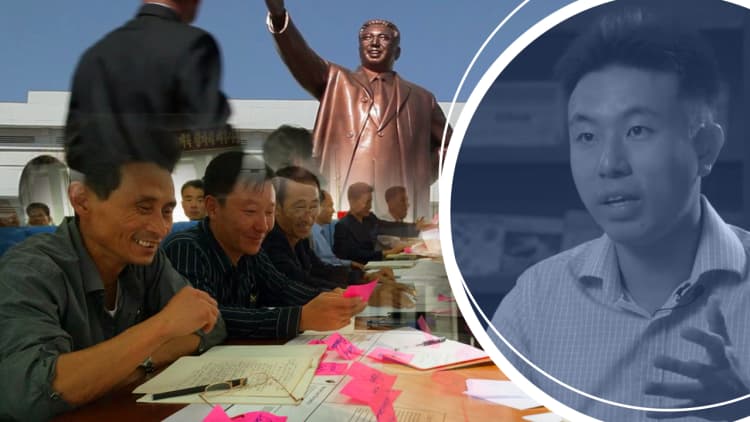
North Korea typically evokes images of its bellicose dictator Kim Jong Un or ordinary citizens struggling to make ends meet against the backdrop of crippling economic sanctions. Geoffrey See wants to change that.
See is a former management consultant at Bain who gave up a lucrative career to bet big on North Korea's business potential. He's been teaching North Koreans the basics of business and entrepreneurship for nearly 10 years through his non-profit, Choson Exchange, which is based in Singapore.
"I think people tend to forget that there are 22 to 25 million other North Koreans. Many of them, who have pretty ordinary lives," he said.
See's non-profit supports entrepreneurs and individuals interested in business in North Korea through workshops, internships and mentorship programs. These programs are available to people living inside as well as outside of North Korea.
A mostly closed kingdom
To be sure, businesses face profound hurdles within the autocratic state. Benjamin Katzeff Silberstein, an associate scholar at the Foreign Policy Research Institute in Philadelphia, pointed out that international sanctions are a major impediment — but hurdles go beyond that.
"North Korea still lacks any sort of legal protection for property rights and the like, in the sense that we would talk about it in the West," he said, adding that "the economy still to a large extent lacks clear and consistently enforced rules and legal frameworks, even though a great number of reforms have improved the situation over the past few years."
For his part, See insists that North Koreans are trying to make a living through entrepreneurship and business and just like the rest of the world, they too want to be integrated with the global economy.
North Korea is known to be reclusive nation with a challenging business environment. So why did See think this would be a good idea?
"I thought this was a communist economy and people wouldn't be interested in running a business. They had a very strong personal aspiration to prove something. So, when I left the country, I thought, what can I do to help them?"
'People were very nervous'
See set up his non-profit Choson Exchange in 2010. He has trained more than 1,300 North Koreans since then.
Describing one of his workshop sessions in Pyongyang he said, "It was a small class of 20 people. People were very nervous. They read through all the materials we gave them, but they were very cautious about asking questions."
While his program is not run for profit and has no connection to the North Korean government, See and his volunteers try to steer clear of pushing the case for capitalism.
"We don't see ourselves as doing training in capitalism. We see it as business and entrepreneurship. For most North Koreans, they believe these are things that are applicable in the current system that they are under," he said.
Even though U.S. and United Nations sanctions have weakened trade relations between China and North Korea since September 2017, it is still considered to be North Korea's leading trade partner.
As a result, North Koreans are increasingly exposed to Chinese tech companies and are gaining a keen interest in e-commerce. "They will often come back and bring up examples of things they've seen like WeChat, or Taobao and say oh, we are very interested to see if we can do something like this in North Korea," See said.
Even though North Koreans are limited to using a tiny, domestic intranet controlled by the government, See said that domestically assembled mobile phones are becoming more common.
"We've seen some food delivery apps pop up on the domestic phone. We don't know how actively people use them, but people are definitely experimenting with new ideas," he said.
Even though North Koreans have limited access to international news, See said he eventually wants North Korea to interact with the rest of the world in a "normal way."
See isn't alone in perceiving a possible upside in the country.
"There is no doubt that there is a great deal of creative power in North Korean society and in its economy, which is often easy to miss in all the bluster," said Silberstein of the Foreign Policy Research Institute. "The past few years have also seen an impressive growth both in quality and scope of domestic manufacturing and innovation."
"But the question," Silberstein said, "is how far this can all go with the way things stand right now."

